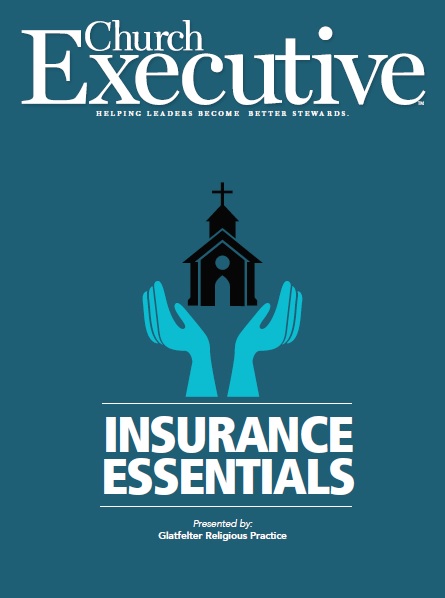
 In the new year, protect your church with strategies to prevent and address these threats.
In the new year, protect your church with strategies to prevent and address these threats.
By Shawn Yingling
Your church is more than just a building.
It’s a community of passionate, caring members who have chosen to share a common mission and message. It’s the setting of weddings, celebrations and mourning. It’s a place to heal, learn and worship.
As a leader of your church, protecting this community is a responsibility not to be taken lightly. But as your church grows, so does its exposure to risk.
To keep their communities safe, church leaders must be vigilant and address potential new threats.
There are three areas of risk that a church might overlook as it expands:
- Employment practices
- Religious expression when providing services
- Security concerns
Protecting your leadership
A larger church generally needs more leaders responsible for running and maintaining the organization. Delegation becomes a necessity; volunteers and employees become even more vital. The management of a growing staff can open the door to potential claims of unfair hiring practices, harassment and wrongful termination.
There are several ways to address and prevent this type of threat. An employee / volunteer handbook can go a long way toward protecting leadership as long as it contains key policies, including, but not limited to:
- A sexual harassment policy
- A non-discrimination policy
- Grievance procedures
Complement these policies with thorough training for all staff, including management.
Even with sound policies and training, church leaders and executives can still be targets of claims of wrongful acts and misconduct. Adding a religious organization management liability policy (sometimes known as directors and officers liability insurance) to your coverage can help board members defend against lawsuits by assisting with legal fees and settlement costs.
Protecting your values

Along with normal growing pains, societal changes are presenting new exposures to churches, as well. While some states exempt churches from anti-discrimination laws, this doesn’t mean they are completely protected from legal claims, as one church in Oregon recently discovered. A vendor which operated out of a church-owned property was forced to turn down business due to the church’s morals clause. The community essentially boycotted the vendor, and the vendor chose to sue the church for lost revenue.
This doesn’t mean you shouldn’t offer services to non-members or compromise your beliefs to avoid a potential lawsuit, but it does mean that your church needs to be prepared to defend itself. Having an insurance policy that specifically covers religious expression might help ease the financial stress of lawyers’ fees and defense costs if your church were to find itself in a similar situation.
Protecting your congregation
Security threats are also a top priority for many fellowships today.
Many congregations are developing or contracting security teams to protect their congregants and give themselves some peace of mind. Unfortunately, this peace of mind has the potential to create another exposure. If a security guard were to injure someone physically or emotionally while working on behalf of the church, the victim might be able to sue for damages. You might want to back up your church’s protection by including a security enforcement liability policy to your insurance coverage. This will help free your security team to use the defensive measures they deem necessary with less fear of financial repercussions.
Churches face unique risks, especially as they grow and extend themselves further into their communities with services such as volunteer programs, charities, daycare centers and events. As stewards to our communities, it’s important not to let these risks prevent you from continuing to do good works and serve your congregation.
Instead, planning for the unexpected with the right insurance policies and coverages can help keep your mission front of mind.
Shawn Yingling is President of Glatfelter Religious Practice. GRP specializes in insurance and risk management programs for churches and other religious institutions and is a division of Glatfelter Insurance Group (an AIG company), one of the largest program managers in the U.S.


